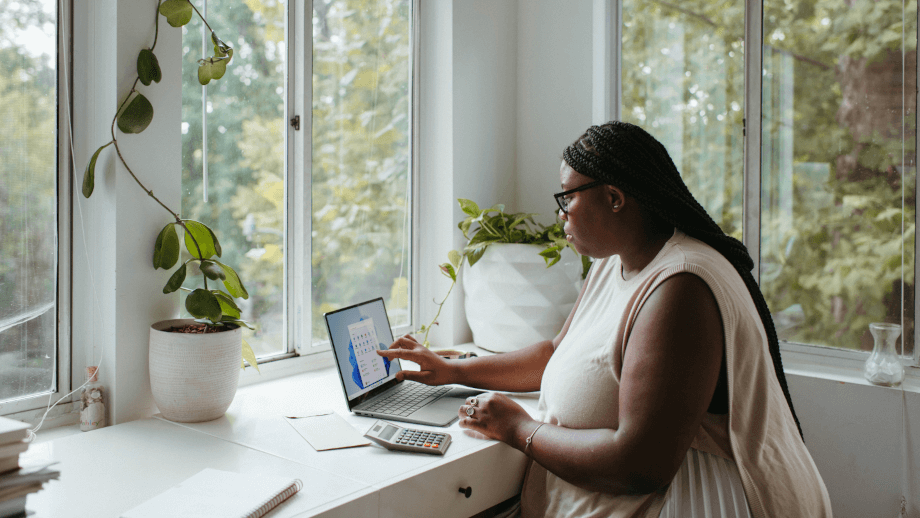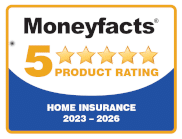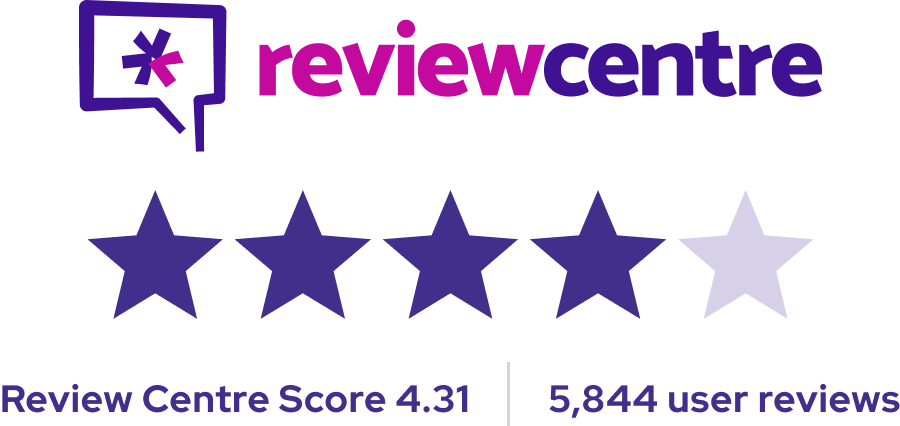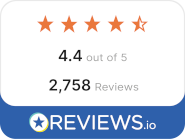unoccupied home insurance faqs
Search for a topic or select a category to find answers to some of our most asked questions.
unoccupied home insurance FAQS
Whether or not you drain the water supply to your home before vacating it may depend on the duration of absence and the time of year. While stopping the water supply can prevent risks like burst pipes and flooding, it can also leave your home susceptible to cold temperatures and the negative effects, such as dampness and mould. If you are leaving the property for a short period during the summer, it may be sensible to drain the water supply, while this may not be the best idea when leaving a property for a whole winter.
Whether or not you leave the heating on in an empty home will depend on how long the property is empty and the time of year. During the summer, it may not be necessary to leave home heating on. However, during the winter, heating the home permanently at a low (but above freezing) temperature or on a timer can help prevent pipes from freezing and the property from suffering dampness or mould.
When a home is left empty for years, it means that no one is around to regulate the temperature and act on the early signs of damage. As a result, long-term unoccupied properties are more susceptible to damp, paint peeling, pests and even wear and tear to the building itself. Plus, these visual signs of neglect also make the property an attractive target to potential intruders.
Leaving a home empty for years also has implications for mortgages and home insurance – which may be invalidated or retracted if the property is unoccupied for a certain period.
Probate house insurance covers properties that are empty after the owner has passed away. Because properties are usually left unoccupied during probate, they need to be covered by unoccupied property insurance, and it is usually the responsibility of the executors to make sure this is done while probate is carried out.
You will need to prove you have an ‘insurable interest’ in the property for Homeprotect to provide cover. Once confirmed, the probate home insurance policy will usually be issued in the name of the executor with any beneficiaries named as additional policyholders.
There are no regulations around how long a homeowner can leave their property unoccupied. However, when it comes to purchasing vacant property insurance with Homeprotect, your home must have been unoccupied for more than 30 days.
Homeowners and landlords must be aware of the additional expectations on them when leaving a property unoccupied. Most empty home insurance providers will still require certain conditions to be met with the property, even if it’s not being lived in.
Insurers will not pay for loss or damage caused by your failure to safeguard your property at all times, so you must take precautions to minimise the risks.
This could include, but is not limited to, locking all external doors and windows, ensuring that someone checks on the property once a week, and turning off all sources of electricity, fuel and water.
There is no regulation around how often a home must be monitored while the homeowner is away. However, many insurers offering empty property insurance will require regular property checks to maintain the policy.
Unoccupied properties can be more susceptible to risks such as fire, burglary, and other hazards. Find out more about why an empty home is riskier in our guide.
The term unoccupied does not mean completely empty of all items or furniture – it refers to a property that is not being lived in. Unoccupied often refers to a property that is left in a state in which the homeowner could return to live in at any point.
If you’re planning to leave your home empty for an extended period, there are a few safety and security considerations. Firstly, after 30 days unoccupied, most home insurance policies are void – so, the homeowner would need an empty home insurance policy to protect against theft or damage. Many empty home insurance policies will also expect the home to be inspected regularly, water and electricity to be switched off and more.
Additional considerations include installing a home security system and using smart devices such as leak detection technology.
Yes, Homeprotect is pleased to offer unoccupied home insurance policies for long periods. If your holiday home will be left vacant during the off-season or between guests for more than 30 days, we can still offer cover. Please read more about our unoccupied home insurance to understand what restrictions apply.
After a person passes away and their property is in probate, it needs to be valued. This can often mean that the house is left empty for some time, and in this case it should be protected by unoccupied home insurance for probate. The beneficiary is responsible for ensuring that the right level of cover is in place.
When a person passes away and their property is left as an inheritance, it is owned by the beneficiary. If there are multiple beneficiaries, then they are co-owners of the property. It is the beneficiary’s responsibility to make sure that the appropriate probate home insurance is in place. For instance, while in probate the building should be protected by unoccupied house insurance.
A house left empty for more than three months at a time, which is often the case when going through probate, is deemed to be more at risk than other homes. For this reason many insurers are reluctant to get involved. Homeprotect aims to give everyone a competitive quote for probate insurance online, regardless of how long your property might be empty.
If you’re handling the affairs of an estate of someone who has passed away, you need to get “grant of probate” before you have the authority as the “executor” to distribute the assets from the estate, as per the deceased’s will.
Probate property refers to an empty home due to the owner recently dying. A property is normally included in the assets listed in a person’s will.
Once the executor has been appointed and has been granted probate, the property and other assets owned by the deceased person’s estate can be distributed or sold, as per the instructions left in the will.
Probate courts administer the distribution of a deceased person’s assets. This can include selling their property; this is called liquidating the deceased’s assets. The sale of the house is therefore subject to probate law, and buyers may need to attend court to confirm the sale.
If the property is normally occupied but left empty for 31-180 days in a row a year, you’re typically covered, except between 1 October and 1 April inclusive, where escape of water incidents are excluded.
If the property is completely unoccupied and unfurnished, or it’s furnished but unoccupied for more than 180 consecutive days a year, you’re not covered for water damage.
Always check your policy schedule for any ‘endorsements’ (special terms) as these could restrict or exclude cover.
Yes! There is, however, often a minimum policy duration for unoccupied insurance, so if the sale completes within this period, you may not be eligible for a full refund on the unused portion of an annual premium paid in advance. If you’ve chosen to pay monthly, you would still have to pay for the minimum period.
There is no need to turn off gas or electricity for insurance reasons and, in fact, it can be a good idea to arrange for lights to come on using a timer switch to deter burglars.
You only need to turn off your mains water if we’ve asked you to as part of the terms and conditions of your unoccupied property insurance cover, although it is also a sensible precaution to take.
You only need to visit your property if we’ve asked you to as part of the special terms and conditions of your unoccupied property insurance cover, although it is also a sensible precaution to take.
Not necessarily! Many of the factors that affect insurance premiums for empty properties are the same as those for occupied homes, such as location and rebuild value. The cost of insurance may be higher for a particular property when it is empty than when it is unoccupied because of higher security risks, or it may be similar but with limitations on what is covered; for example, buildings cover may be limited to fire, lightening, explosion, earthquake and aircraft collision, but not include storm, flood or subsidence.
Probably not. Standard insurance policies do not generally provide adequate cover for vacant homes, which are usually classed as being left empty for 30 consecutive days or more.
Homeprotect home insurance covers a wide variety of situations including properties that are let out, as well as properties that are empty for different reasons, such as during voids between tenants.
If your property is usually rented out but will be empty for more than 30 days, you need to let us know.
As with any insurance policy, the cover is based on the information you’ve given your provider, so if it’s incorrect there is a risk that your policy could be cancelled or that any claims could be rejected.
Empty house insurance covers your premises for losses caused by fire, lightning, explosion, earthquake, smoke, aircraft collision and legal liability. Find out more details on our unoccupied home insurance page.
Depending on the type of cover you choose, you may be able to reduce your premium by increasing the voluntary excess that you would pay if you claimed.
Yes, most empty properties will still require the homeowner to pay council tax. However, you may be able to apply for an exemption in a few specific instances. This includes properties that have been unoccupied for two or more years, those undergoing a probate process, instances in which the owner is in the hospital or a care home and if the property cannot be lived in by law.
See the full list of empty property council tax regulations and exemptions on the government website.
Properties can be unoccupied for a number of reasons. If it’s your main home, you might be away for an extended period for work or on holiday. A home may also be left empty if an elderly owner has moved into care or during probate. Properties are also often unoccupied if extensive building work is being carried out.
Many unoccupied properties are second homes, which have either been bought as rental properties or inherited. Buy-to-let properties may be empty because of ‘voids’ between tenants, or while undergoing renovation, and holiday homes may be vacant out of season. Inherited properties are frequently left empty while the new owner or owners decides what to do with them, particularly as this type of home may need renovation before it is suitable for rental.
Empty properties carry greater risks in terms of burglary, vandalism or even squatting, and also the amount of damage caused by unnoticed issues like burst pipes.
Homeprotect needs to know if your property is unoccupied for more than 30 consecutive days or more so that they can factor these increased risks into your policy terms.
Many of the factors that affect insurance premiums for empty properties are the same as those for occupied homes, such as location and rebuild value.
The cost of unoccupied home insurance may be higher for a particular property because of higher security risks, or it may be similar but with limitations on what is covered. For example, buildings cover may be limited to fire, lightning, explosion, earthquake and aircraft collision, but not include storm, flood or subsidence.

Get a home insurance quote online
Get a quote online in less than 10 minutes*



